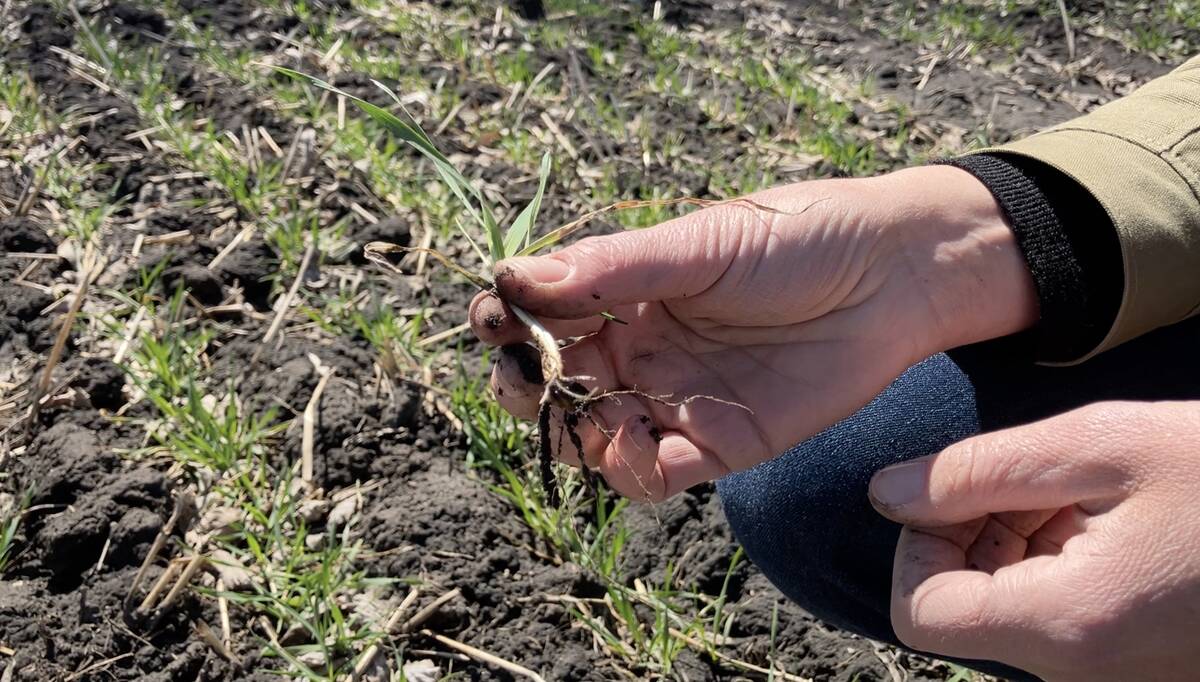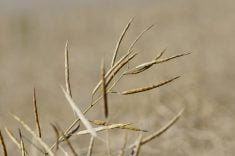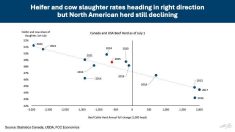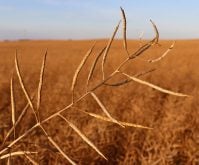Market access issues in general are becoming a bigger issue globally, according to Ian Epp, an agronomy specialist and market access and pesticides lead with the Canola Council of Canada. “We see more scrutiny under those things.”
Why it matters: International market standards can be a mess to detangle, and present a nasty surprise if the grain farmer inadvertently runs afoul of them.
The burden of that increased scrutiny falls directly into the laps of farmers.
Read Also

Manitoba farmers wary of research hit after AAFC cuts
Agriculture and Agri-Food Canada cuts claim Portage la Prairie research farm; Manitoba farms groups wrestle with potential impact.
The Keep it Clean program touts itself as a tool to help farmers deal with that burden. The program is a joint initiative of the Canola Council of Canada, Cereals Canada, Pulse Canada and the Prairie Oat Growers Association. It includes tools to help farmers ensure their crops meet the ever-changing marketing standards of Canada’s international trade partners.
“It’s kind of a one-stop shop for growers to get information around market access issues,” Epp said.
“Across commodities, we deal with a lot of similar issues, whether it’s similar active ingredients or similar markets of concern, so it’s a good way to give growers clean, uniform messaging on the things they should be thinking about as they plan for the growing season.”
The Keep it Clean website provides five tips on how farmers can meet these challenges:
- Use acceptable pesticides.
The website offers an annual product advisory list, updated at the end of April. That list highlights products that are off limits.
- Always read and follow the label.
Before applying any crop protection product, read the label to find the application rate, timing and pre-harvest interval.
- Manage disease pressures.
Integrated disease management plans help maintain yield and profitability and can help protect Canada’s reputation as a supplier of high-quality canola, cereals and pulses, according to the website.
- Store your crop properly.
Proper storage helps maintain crop quality and keeps most grain free of cross-contaminants.
- Deliver what you declare.
The Declaration of Eligibility affidavit is a legally binding document. Any incorrect information, intentional or unintentional, can be traced back to the farm and individuals can be held liable for the costs associated with the contamination of a bin or shipment.
There is good buy-in for the program, according to Epp, but it’s easy to forget about the issues it highlights during harvest, amid the pressure of getting crop off the field.
“There are a lot of things to manage throughout the season to get the most bushels into the bin, and that’s often when we check out,” he said. “But the next step, that is more and more important, is you actually have to sell that grain.”
With most Canadian grain being sold outside the country (90 per cent of canola, 85 per cent of pulses and 65 per cent of cereals), Epp stressed the importance of providing clean products.
“Grain companies have to meet obligations in those other countries. So, we have to make sure that not only is it in the bin, but that it is ready to market. Our customers are demanding that of us.”
Gregg Fotheringham, a Manitoba producer who farms near Reston, said that, while there’s no immediate economic benefit of adopting Keep it Clean practices, the consequences of ignoring it down the road could be severe.
“We probably don’t see an increase in value at the farm gate, but that being said, what’s the cost of losing one of our export markets?”
In terms of the Declaration of Eligibility, farmers must ensure that what they promise to the grain companies is true.
“We sign a declaration with the grain companies, and we’re essentially guaranteeing them what we’ve done on our own operation right,” Fotheringham said.
International scrutiny on glyphosate is an ever-present cross-commodity issue facing grain companies, especially in the pre-harvest window, said Epp.
“If the timing and application are done correctly, it works really well agronomically, and we don’t have residue issues,” he said.
Spring is a good time to run through those pre-harvest intervals, since producers are in the midst of setting up pesticide plans for the year, Epp noted. And from Fotheringham’s perspective, there’s really no excuse.
“The website is extremely detailed,” he said. “It’s very easy to go through and very easy to understand why this program is out there and why it’s so important.”
Keep it Clean will host a webinar April 26 to coincide with the release of its latest product advisory.
















